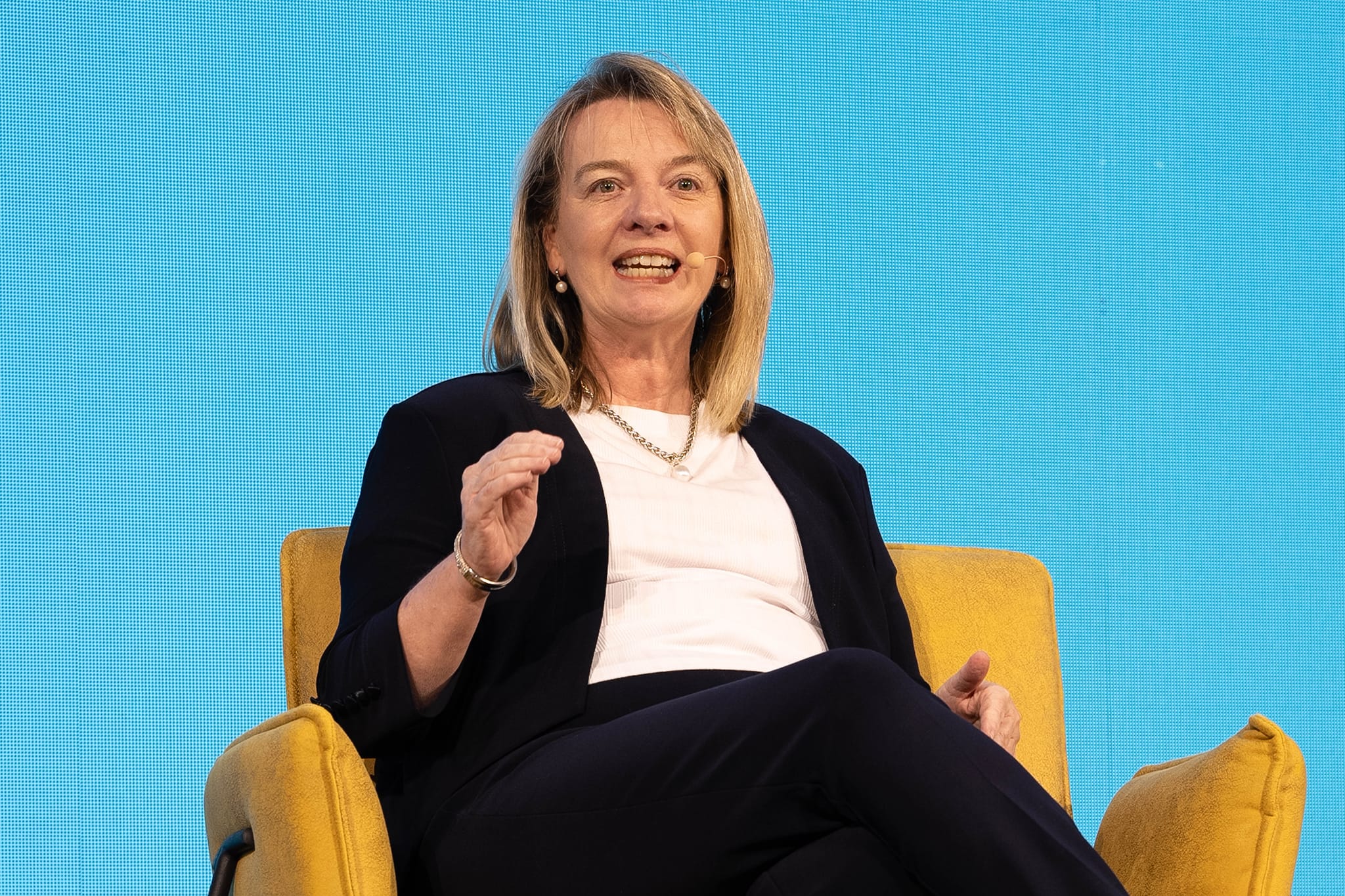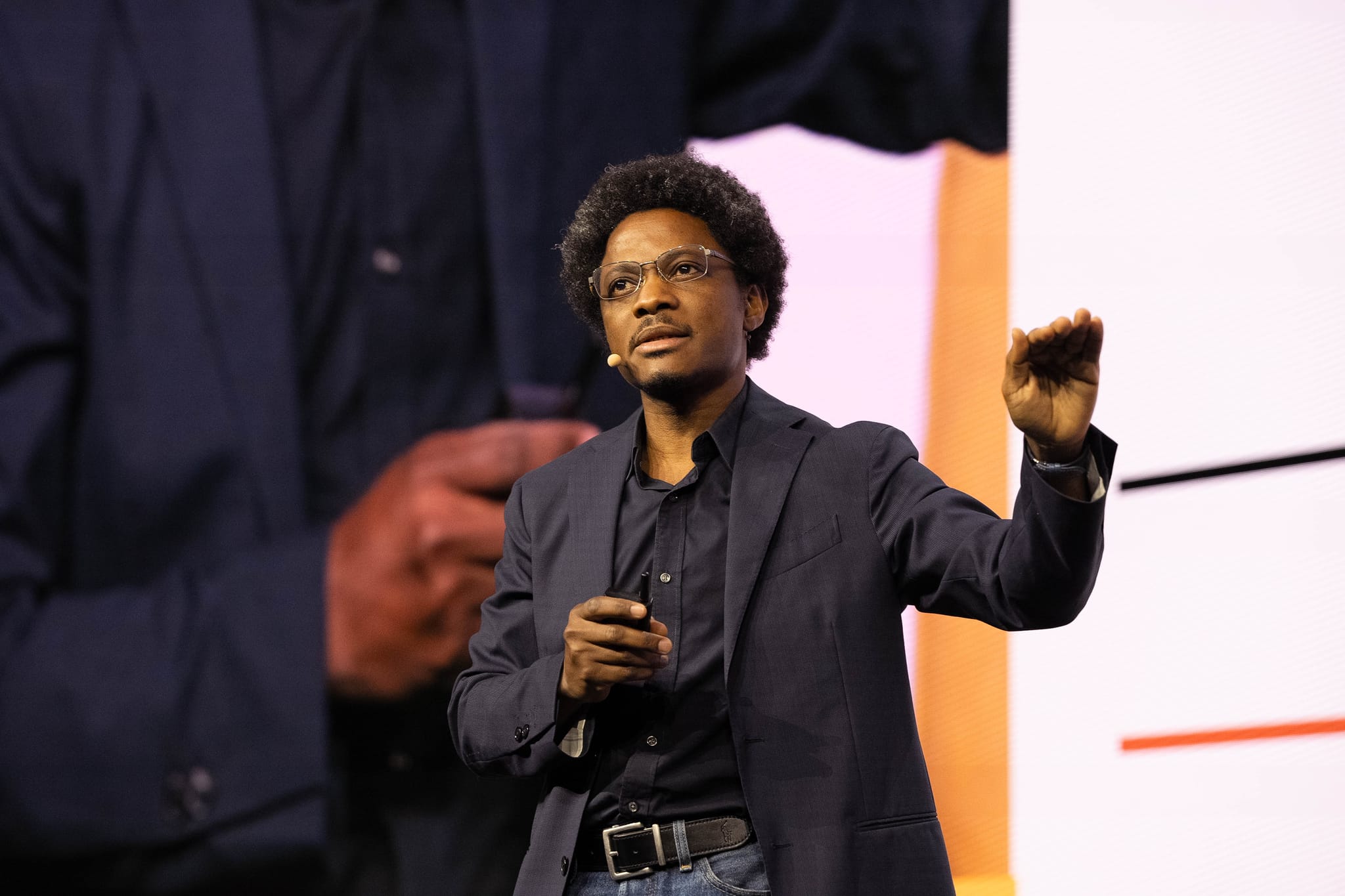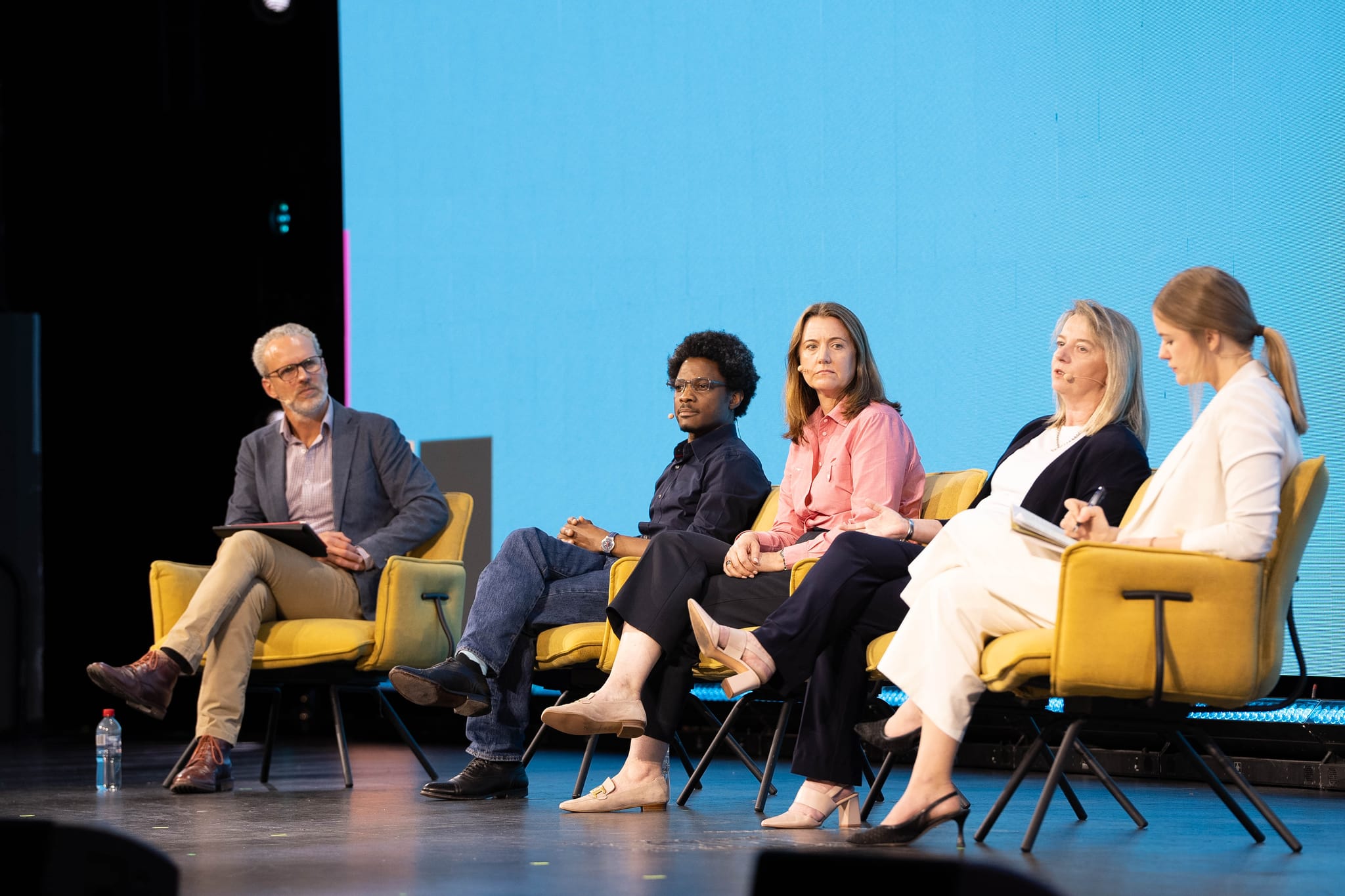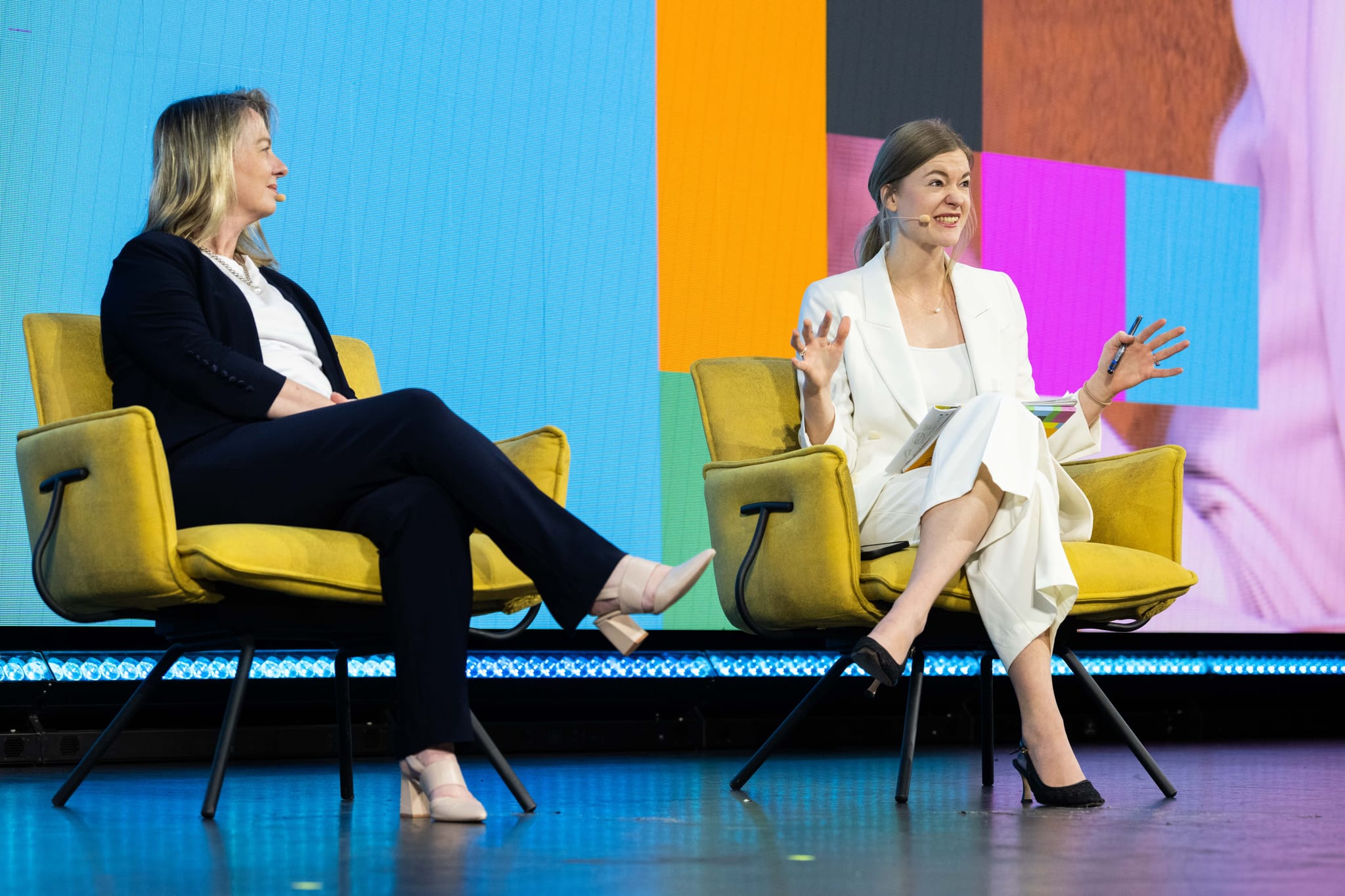Rethinking capitalism vs discounted solar pumps: Can we agree on a pathway to a new climate economy?
As 2030 looms, our climate is in crisis, the sustainability targets set by big business seem a mile away – and food producers are being pressured to make up the shortfall. But is on-farm action enough? Or do we need to rethink the entire system that funds agriculture? Here, thought leaders in sustainability and finance unpack the path to a new climate economy, and why – in the defining race of our time – we can’t leave primary producers behind.
There’s an adage, ‘We shouldn’t change our shoes while running, lest we fall’. Ordinarily, it’s good advice. But what option do we have in a race as urgent as the climate crisis?
It turns out we do need to change our shoes (the global footwear industry accounting for 1.4% of global GHG each year) but we need to make other changes on the run, too.
At AgriFutures evokeAG. 2024, global thought leaders in sustainability and finance unpacked the path to a new climate economy, and why – in the defining race of our time—we can’t leave primary producers behind.
Credit where credit’s due
“Australia’s farming community is leading the way in tackling three immensely challenging global problems,” said Natasha Greenwood, General Manager of Agribusiness at the Commonwealth Bank of Australia (CommBank).
“How do we produce more to feed and clothe a growing population? How do we sequester carbon and avoid emissions? And how do we rebuild natural capital?
“While there may be debate about how quickly we’re going, producers are just getting on with it.”

Natasha Greenwood, General Manager of Agribusiness at the Commonwealth Bank of Australia.
But in a concept as existential as a new climate economy, debate is a certainty.
Dr Lewis Akenji, Managing Director of the Hot or Cool Institute, argued he’s never been to a country that says its farmers are terrible, central as they are to each country’s identity, economy, and politics.
“Are Australian farmers doing well? Yes. Are they highly regarded globally? Yes. But is it enough? No.
The think tank founder wants us to look beyond the paddock, and to the architecture of the entire system that finances farmers across the world.
“At AgriFutures evokeAG. 2024 we had a wonderful example of the ‘tractor of the future.’ A tractor is supposed to be a tool for the farmer to improve productivity. But right now, the farmer is the tool of the tractor company to make money,” argued Lewis.
RELATED: Growing opportunities for natural capital: A new frontier for Australia’s agrifood sector
“Once you understand the nature of that relationship, then you ask the question, ‘How do we design investments in a way that delivers a more meaningful impact?’ If investments are primarily targeted towards making money, then we develop a very perverse system in which the same farmers that you describe as doing so well, are end losers in a global technological competition where they have very little power.”
Capitalism got us into this climate catastrophe. But is revolution the only way out?
There’s no denying that significant profit-seeking capital is invested in sectors which undermine nature positive goals. At least $2.6 trillion per year according to Katherine Stodulka, partner at systems change company, Systemiq.
“But we’re not going to change the face of capitalism in the next couple of years,” Katherine conceded.

Dr Lewis Akenji, Managing Director of the Hot or Cool Institute.
“That means nature positive solutions need to make a profit if they are going to last. We need them to be investable, or this ends up all being charity – and there’s not enough philanthropy and government money to save the world.”
REATED: In the rush to sell carbon credits, bear in mind – there are no surplus offsets in agriculture
She added that calling out bad money without then doing something differently is just “admiring the problem.”
“The good news is that a lot of the solutions to the climate crisis in ag are not only investable, they are being pioneered in Australia,” Katherine said.
“Getting over our ‘imposter syndrome’ and marketing these solutions is key.
For Katherine, this is also about investors taking a longer-term view when evaluating company transition plans, opportunities, and resilience.
“We have major systemic flaws in our financial system around the way we report, measure, and track sustainability performance. Big companies report quarterly, changing to a sustainable business model won’t necessarily change anything in a quarter,” she said.
RELATED: Sober, yet hopeful reflections on agrifood tech funding for 2024 and beyond
“We need to see past short-term incentives. Over the long-term, a solution like regenerative ag will not only reduce the cost of inputs and build resilience for extreme weather events, but also help tap into new profit pools and avoid getting locked out of major export markets.”
RELATED: How the best businesses manage risk
Macro scale to micro action
But how can a farm business translate global issues into action, and remain viable?
“There is strong interest from farm businesses and the broader agribusiness sector, but it is important to ensure productivity goes hand in hand with sustainability,” said Anna Bennett, Executive General Manager of Strategy, Sustainability and Innovation at Elders.
“But it is evolving, and solutions will get cheaper. We’re looking at biologicals and how much substitution we’ll see in our rural products business. Over time, their cost curve will come down and they’ll become an increasingly important part of the agronomy landscape.”

Anna Bennett (centre), Executive General Manager of Strategy, Sustainability and Innovation, Elders.
It’s reassuring, too, that there’s unlikely to be universal expectations on supply chains and farm businesses.
“Not every farm is expected to get to Net Zero,” explained Natasha.
RELATED: Five truths we need to spur Australia’s agrifood producers into faster action on carbon
“We’ll see the farms which have more capacity and capability, do a lot of the heavy lifting while other farms might move at a pace which is appropriate to them.
“But there’s an enormous opportunity for every farm to think about practice change that might deliver both economic and sustainability outcomes and that might be as simple as replacing a diesel pump with solar.
Lewis agreed, and cautioned regulators against designing policies that aren’t attuned to circumstances on the ground.
“The EU protests are not because farmers are denying climate change,” he said.
“It’s that they’re being squeezed by large corporations, pushed by policies they don’t understand, and supermarkets are rejecting produce because it doesn’t meet the criteria.”
“The difficult question is, ‘How do we put in place policies that separate a very vulnerable group from a very advantage-taking group?’”
A (sustainability) target on our backs
As 2030 looms, much of the squeeze on agriculture will come from further up the value chain, with companies desperate to make good on their sustainability pledges.
“I know at Elders’ investor meetings, there’s a lot of interest about what we’re doing, and our future plans. This interest is from across the investment community including a number of superannuation funds, so it’s not just green capital,” explained Anna.
“And money is pulling out where it doesn’t see a clear transition pathway,” added Katherine. “We’re seeing pension funds pull out where they don’t believe companies are on target.”

Katherine Stodulka, Partner, Systemiq, and Chair – Blended Finance Taskforce, Systemiq.
We’re also seeing how easy it is for big corporations to set targets, and then just push the requirements onto farmers.
“The closer you get to the producer, the more real that decarbonisation agenda becomes,” explained Katherine.
“We need to ensure that this isn’t just a burden –that requires dialogue and support. It’s unfair not to have conversations down your value chain about setting targets.
“And it’s unfair not to also be part of developing the solutions you described to meet those targets. It takes the whole system to transition – this can’t just be pushed onto the producer.”
So, what can farmers do?
The rallying cry from evokeAG. 2024? Know your carbon baseline.
Natasha said it’s not today’s number which matters.
“It’s what you might do with that number. What farm practices could be implemented to improve your farm’s profitability, productivity, and sustainability?” she asked.
RELATED: Recipe please: The ‘base biscuit’ for farmer and community driven innovation
For those wanting to take the next step, CommBank’s green finance solutions incentivise action on farm, like discounted finance for sustainable equipment purchases, and the first-to-market Agri Green Loan for on-farm environmental projects.
While undoubtedly a catalyst for transition, Natasha observed that these are “fairly traditional finance solutions with a discounted pricing option. We’ve also got to invest in new and emerging ways to finance.”
RELATED: Why on-farm sustainability measurement is worth the effort
That might mean treating carbon and biodiversity as tangible assets farmers can leverage.
Katherine urged the agrifood ecosystem to consider green finance options, likening it to an investor betting on our transition to a more resilient future.
“Investors have set targets, and incentivising action is how they’ll deliver.”
“Frankly, it’s a bet on the way the market’s going. So let investors take that bet and help you.
Dr Lewis Akenji, Managing Director, Hot or Cool Institute; Natasha Greenwood General Manager, Agribusiness, Commonwealth Bank Australia; Anna Bennett, Executive General Manager of Strategy, Sustainability and Innovation, Elders; and Katherine Stodulka, Partner, Systemiq, and Chair – Blended Finance Taskforce, Systemiq, participated in panel session, ‘Charting the path to a new climate economy’ at evokeAG. 2024. The session was facilitated by Tim Hunt Principal, Tim Hunt Consulting.
Tickets are now on sale for evokeAG. 2025 to be held on 18-19 February 2025 in Brisbane, Queensland. Following a sell-out event in 2024 we are encouraging delegates to secure their tickets, flights and accommodation early.
We look forward to seeing you in Brisbane for evokeAG. 2025. In the meantime, catch up on the other conversations about sustainability, climate resilience and the role of agtech in meeting those challenges from here.
